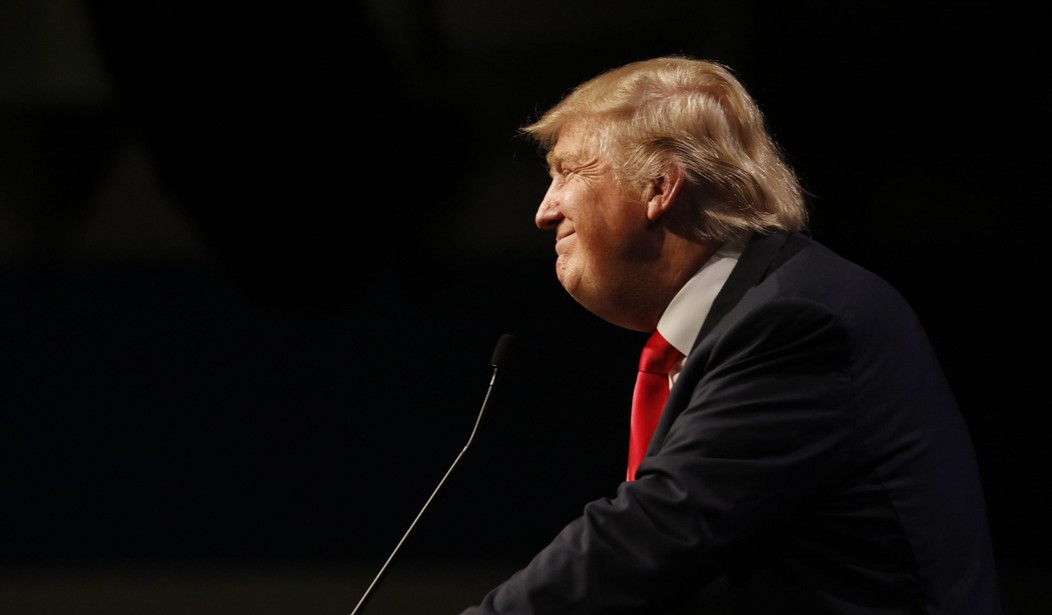As they once did in their protests against the Vietnam War, American academic historians are now trying to use their positions in academia to present “scholarly” reasons why Donald Trump must not be president of the United States. They have formed a group called “Historians Against Trump” (HAT), since obviously “Historians Against War” was not appropriate for this salvo.
Their “Open Letter to the American People,” published on their website, is one of the most arrogant, pretentious piece of claptrap they could possibly have written. Why have they written this letter? This is their reason:
Historians understand the impact these phenomena have upon society’s most vulnerable and upon a nation’s conscience. The lessons of history compel us to speak out against a movement rooted in fear and authoritarianism. The lessons of history compel us to speak out against Trump.
I am no fan of Donald Trump, and I am not going to vote for him this election, but their argument does not stand up. First, what if there was a large group of conservative historians in the academy who decided to write an open letter about the election, claiming “the lessons of history” as their reason for arguing we should vote Republican? The HAT would no doubt loudly condemn them for using the fact that they are professional historians with Ph.D.s as the reason they should be listened to.
As we know, I could count the number of self-proclaimed conservative historians in the academy on the fingers of one hand. The truth is that the historical profession has been captured by people who are largely made up of aging New Leftists and their students now entering the profession, all of whom are either left/liberal, socialist, Marxist or even Communist.
Their letter argues that Trump’s very candidacy is “an attack on our profession.” Would they countenance an Open Letter from conservative historians that says the people should vote for Trump and that Hillary Clinton’s candidacy is an “attack on our profession”?
Opponents of Trump can argue that he is unfit to hold the presidency, a demagogue who does not know anything about social or foreign policy, etc. These are personal political judgements, and they could be right or wrong. But having an anti-Trump view does not mean that they have the right to speak as historians. Maybe they need to book some sessions with their sister anti-Trump group, “Citizen Therapists.” For that matter, why must therapists, too, speak out against Trump, as therapists? Well, of course, they come up with a similar reason:
Trumpism will undermine the emotional health of those seen as the “other” in America—both historically denigrated groups and those whose turn will come…. As therapists, we have been entrusted by society with collective responsibility in the arena of mental, behavioral, and relational health….Therefore, as citizen therapists we stand united against the dangerous ideology of Trumpism.
What if a group of conservative therapists wrote the same statement arguing that supporting Hillary Clinton is undermining their patients’ “emotional health?” You know that a wide group of mental health professionals would be up in arms about their using their profession as a reason for not supporting Hillary Clinton. Moreover, how would they treat a patient of theirs who is public about his support of Trump? Obviously, they would think that person must be very disturbed indeed.
The misuse of history by leftist professors goes back to the heady days of the 1960s and ’70s. When the Vietnam War was raging, the late Eugene D. Genovese, then a Marxist historian, shocked the left at one of the historical society’s conventions. The newly formed Historians Against the War brought up a resolution at the business meeting that would have put the entire association on the record as opposed to the war. Genovese, one of the most respected historians in the profession, got up and publicly opposed the anti-war historians. He argued – although he too was an opponent of the Vietnam War — that many in the association supported the war, and one could not use the fact that they were historians to speak for the entire profession. Moreover, he argued against what he called “the politicization of history” by leftist historians. Before the vote, he said that the association “should crush the left, once and for all.” Today, such a resolution would undoubtedly get the majority of votes at a historical association’s business meeting. This is because what the New Left did, having failed to change society, was to go into the profession of history and undertake “the Long March through the existing institutions.” One result is the current petition.
In response to their letter, Professor of Law Stanley Fish has written a column in this Sunday’s New York Times. Mercilessly slashing all of their arguments, he boils them down to noting that in effect, all they are saying is “We’re historians and you’re not,” and hence they are obliged to inform Americans that the lessons of history tell us Trump should not be elected. That they have Ph.D.s is not proof that they can equate “an advanced degree with virtue.” Fish writes:
By dressing up their obviously partisan views as “the lessons of history,” the signatories to the letter present themselves as the impersonal transmitters of a truth that just happens to flow through them. In fact they are merely people with history degrees….[which] does not qualify them to be our leaders and guides as we prepare to exercise our franchise in a general election. Academic expertise is not a qualification for delivering political wisdom.
As a historian who has been fighting this good fight for too long a time, I fully agree with Fish that historians should not as historians be making “political pronouncements of any kind.” In trying to “invest their remarks with the authority of their academic credentials,” as Fish puts it, they are forfeiting the very sine qua non of what being a historian means. The long years of study and the skills they acquired, which earned them advanced degrees, do not come with the right to use those degrees to tell Americans how to vote.









Join the conversation as a VIP Member